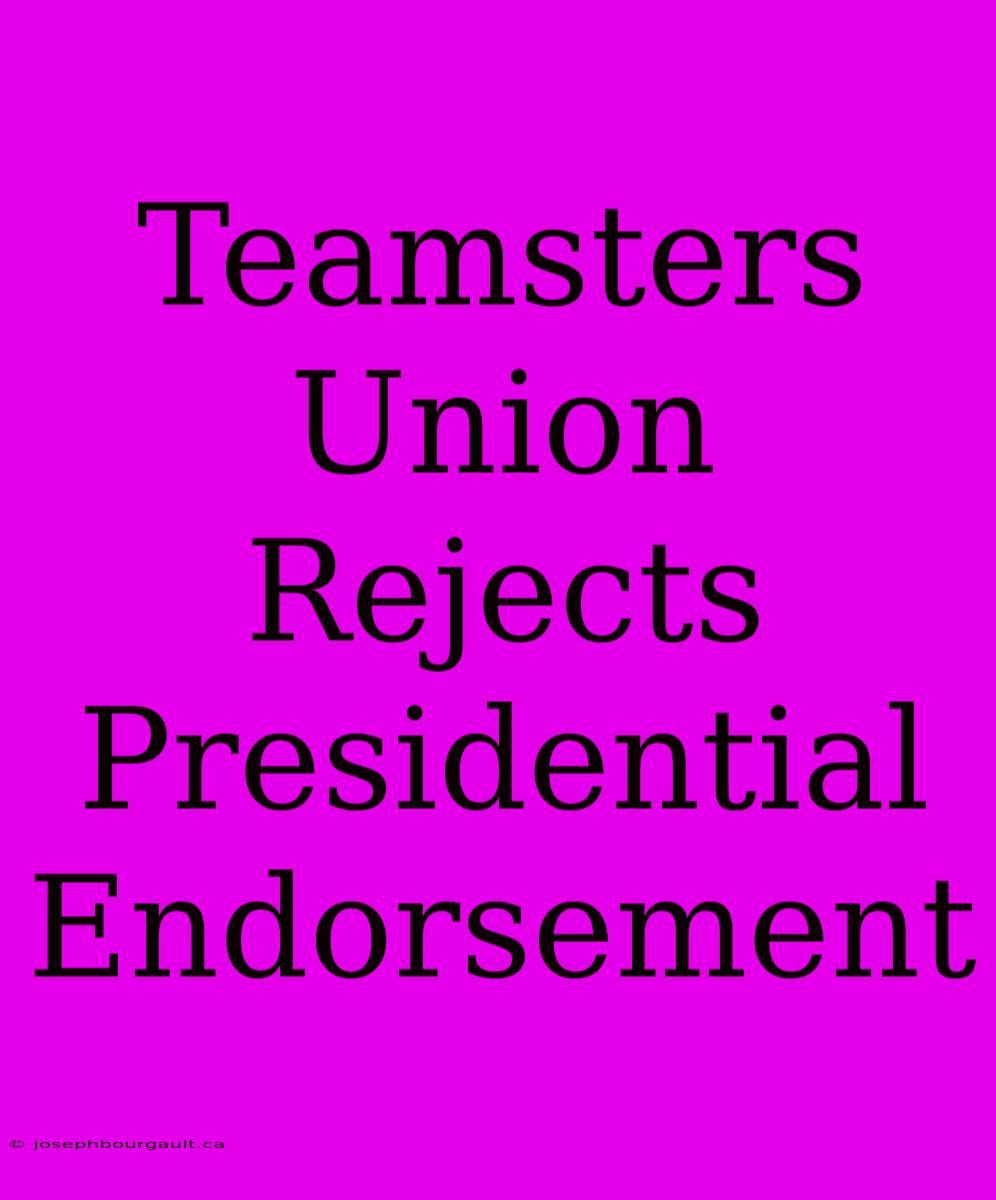Teamsters Union Rejects Presidential Endorsement: A Sign of Labor's Shifting Landscape?
The Teamsters Union, one of the largest and most influential labor organizations in the United States, has made a significant move by rejecting a presidential endorsement in the upcoming election. This decision, announced at their recent convention, has sent ripples through the political landscape, raising questions about the changing dynamics of labor unions and their relationship with political parties.
Why the Rejection?
The Teamsters cited several factors contributing to their decision. Concerns over a lack of support for organized labor from both major parties were a key reason. The union expressed disappointment with the current administration's failure to address issues crucial to its members, including worker rights, fair wages, and the erosion of union power.
Furthermore, the Teamsters stressed their commitment to remaining independent and focusing on their core mission of advocating for its members' interests. The union's leaders believe that direct engagement with candidates and policymakers, rather than a blanket endorsement, will yield greater benefits.
Implications for the Election and Beyond
The Teamsters' rejection of an endorsement is a significant signal of the growing dissatisfaction among labor unions with the current political climate. It suggests a shift away from the traditional, monolithic approach to political engagement, where unions often endorsed specific candidates.
This move could empower labor unions to exert more influence on policy decisions by engaging in targeted advocacy and negotiating directly with both parties. It might also lead to increased scrutiny of candidates' positions on labor issues, pushing them to be more responsive to worker concerns.
A New Era for Labor?
The Teamsters' decision could be a harbinger of a new era for organized labor, where unions prioritize direct engagement with politicians and policymakers. This approach, focused on advancing specific policy goals rather than solely supporting a particular candidate, could be more effective in securing tangible gains for workers.
Ultimately, the impact of the Teamsters' decision remains to be seen. However, it highlights the changing landscape of labor politics and the growing need for unions to find innovative ways to advocate for their members in an increasingly complex and polarized political environment.

